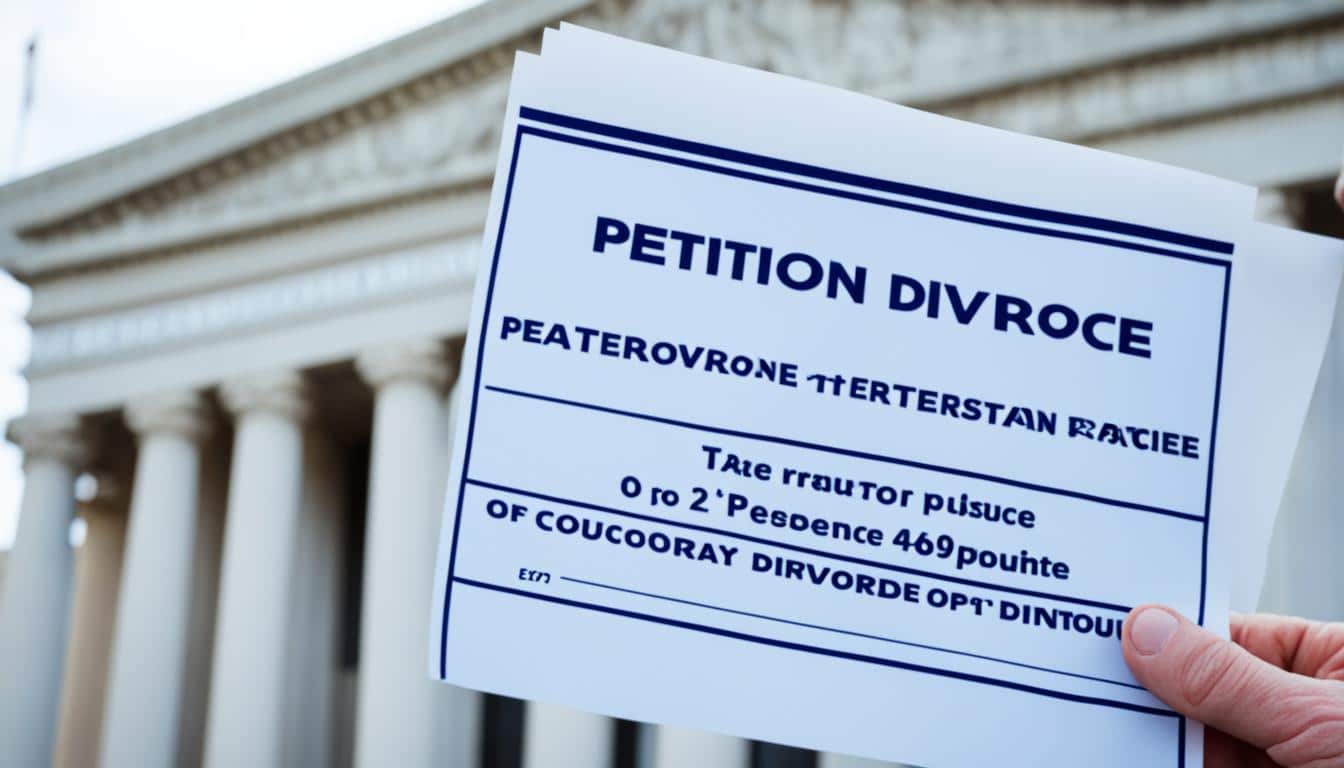Physical Address
304 North Cardinal St.
Dorchester Center, MA 02124
Physical Address
304 North Cardinal St.
Dorchester Center, MA 02124

Filing for divorce in Tarrant County, TX, can feel like navigating a complex labyrinth. It’s not just about legal documents; it’s a pivotal moment in your life. You’re at a crucial crossroads, where each decision will shape your future. In Tarrant County, the divorce process has its unique set of challenges and requirements.
To ensure a smoother journey, understanding Tarrant County’s specific divorce laws is essential. This includes knowing the residency requirements and familiarizing yourself with the intricacies of the local court system. We’re here to guide you through this process, offering clear, actionable advice tailored to Tarrant County. Consider this your roadmap, simplifying a journey that might initially seem overwhelming.

Are you ready to start the divorce process in Tarrant County? Keep reading as we outline the essential steps, aiming to make your path forward clearer and more manageable. Let’s embark on this journey together, moving towards new beginnings and brighter futures.
To get more info on filing for divorce in Texas, find a detailed overview in our article, How to File for Divorce in Texas.
In order to file for divorce in Tarrant County, Texas, you or your spouse must meet certain eligibility requirements. These requirements include residency and domicile requirements. To file for divorce in Tarrant County, at least one party must have been domiciled in Texas for at least 6 months. Additionally, either you or your spouse must have resided in Tarrant County for at least 90 days. It’s important to meet these eligibility requirements to ensure your case can be reviewed by the local court.
Residency requirements are a crucial factor when considering divorce in Tarrant County. At least one party must have established domicile in Texas, meaning they have made the state their permanent home. This is demonstrated by residing in Texas for a minimum of 6 months prior to filing for divorce.
Furthermore, to file for divorce in Tarrant County specifically, either you or your spouse must have lived within the county for at least 90 days. These requirements ensure that the divorce case is properly reviewed by the local court.
Meeting the residency and domicile requirements for divorce filing in Tarrant County TX is essential to initiating the divorce process. It establishes the jurisdiction of the court and ensures that your case is handled within the appropriate legal framework. By complying with these requirements, you can move forward with the divorce process in Tarrant County and seek a resolution to your marital situation.
When filing for divorce in Tarrant County, Texas, it is important to understand the grounds for divorce. There are two main types of grounds for divorce: no-fault and fault-based.
No-fault divorce is the most common type of divorce in Tarrant County. It typically occurs when the marriage is deemed insupportable due to conflict or the parties have been living apart for at least three years.
Fault-based grounds for divorce include situations where one spouse has engaged in adultery, cruelty, abandonment, has been convicted of a felony, or has been confined to a mental hospital.
Understanding these grounds is essential when filing for divorce in Tarrant County as it can impact the legal process and the outcome of the divorce settlement.
Filing for divorce in Tarrant County involves several steps. It’s important to follow these steps carefully to ensure your divorce case is processed correctly. The steps include:
Following these steps will help you navigate the divorce filing process in Tarrant County and ensure that your case progresses smoothly.
When filing for divorce in Tarrant County, there are filing fees that you will need to pay. The filing fees vary depending on the county and may change over time. It’s important to understand the exact amount of the filing fees in Tarrant County before bringing your case to court. You may need to inquire about the fees at the clerk of the district court where you plan to file.
| Description | Fee/Cost | Additional Information |
|---|---|---|
| Filing Fee for Petition for Divorce | Starts at $250-$300 | Additional costs for serving and copies. Payment accepted in cash, credit, money order, or cashier’s check. |
| Serving Spouse with Divorce Papers | Typically around $8 | – |
| Making Copies of Paperwork | Varies | Depends on the number of copies required. |
Understanding the filing fees will help you prepare financially for the divorce process in Tarrant County.

If you cannot afford to pay the filing fees for divorce in Tarrant County, you may be eligible for a fee waiver. A fee waiver is a request for relief from the court due to financial hardship. To request a fee waiver, you will need to file a Statement form, and the judge will review it to determine if your financial situation qualifies for relief. Understanding the options for a fee waiver in Tarrant County will help you navigate the divorce process without financial burden.
The court is located at:
200 E Weatherford St #2, Fort Worth, TX 76196, United States
If you prefer to file for divorce in Tarrant County without an attorney, you have the option of self-representation, also known as a pro se divorce. While it may be more challenging, especially if your case is complex, navigating the divorce process without legal representation is possible.
To successfully file for divorce without an attorney, it’s crucial to familiarize yourself with the specific procedures and requirements in Tarrant County. Take the time to research the necessary forms, documents, and deadlines.
Additionally, consider seeking resources and assistance to help you through the process. The Tarrant County Family Law Center provides valuable information and support for individuals filing for divorce without an attorney. They offer workshops, online resources, and guidance to help you understand the legal proceedings and navigate the paperwork.
Remember, although filing for divorce without an attorney requires extra effort on your part, it can save you substantial legal fees. By being well-informed, organized, and utilizing available resources, you can successfully file for divorce in Tarrant County without an attorney.
To see how this process of filing for divorce in Tarrant County compares to that in other TX counties, check out our articles about how to file for divorce in Smith County TX and filing for divorce in Travis County TX.